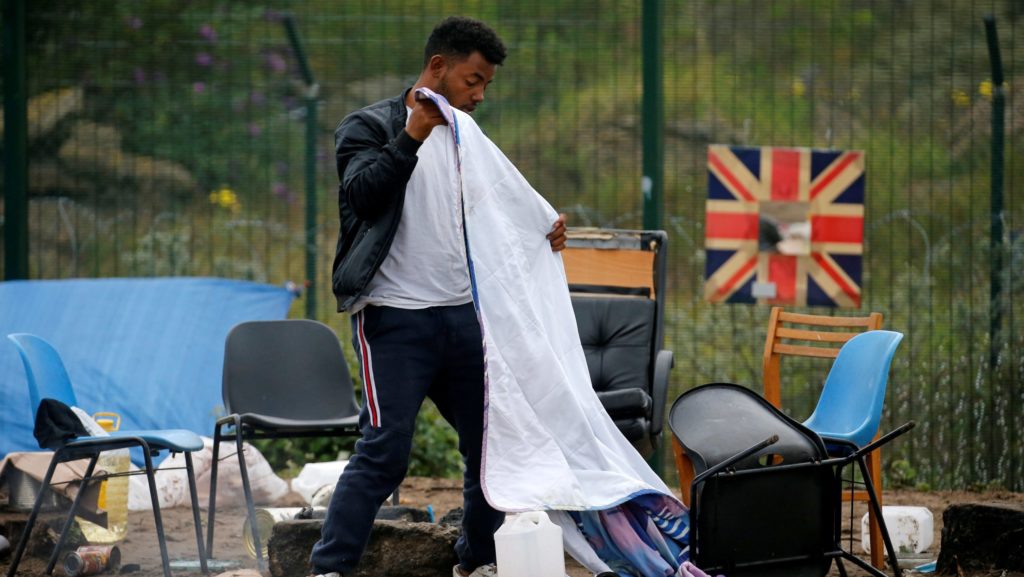The U.K. government is “choosing criminalization over compassion and protection” with its new asylum and immigration bill, according to the Catholic Bishops’ Conference of England and Wales.
The Border Security, Asylum, and Immigration Bill is currently making its way through the U.K. Parliament and passed its second reading on Feb. 10. It comes as asylum and immigration have been highlighted as key priorities by both the current Labor government, elected in July 2024, and the previous Conservative government.
Government statistics showed that, in 2024, 36,816 migrants arrived in the U.K. on 695 small boats, compared with 2018 when 300 people arrived on boats. Both Labor and Conservative administrations have advocated stringent measures to counter immigration.
The new bill stipulates automatic refusal of U.K. citizenship to illegal immigrants to the U.K., no matter how much time has elapsed.
The new law would make it illegal to enter the U.K. without approval, even though the U.K. signed on to the 1951 U.N. Refugee Convention, which states that neither asylum seekers nor refugees can be penalized for entering illegally.
Bishop Paul McAleenan, lead bishop for Migrants and Refugees, criticized the government for imposing “harsher measures” on those seeking asylum and for failing to provide safe and legal routes for those who need them.
“This bill seems to favor criminalization over compassion and protection,” McAleenan told CNA. “The new government has done little to address the lack of safe and legal routes — genuine alternatives remain unavailable. Instead, the government has proposed even harsher measures, such as expansion of detention powers and reduced protection for survivors of trafficking and modern slavery.”
Introducing the bill, the government said it was “inspired by the approach taken to counter terrorism,” adding: “The Border Security, Asylum, and Immigration Bill will strengthen the U.K.’s response to border security threats.”
Home Secretary Yvette Cooper said that people are smuggling gangs into the U.K. and this bill will give police more power to deal with the problem. Cooper told the BBC: “The gangs have been allowed to take hold for six years.” However, McAleenan commented that many coming to the U.K. have legitimate reasons for seeking asylum.
“It is difficult to see how measures that criminalize asylum seekers will achieve these aims,” he said. “A distinction must be made between victims and those who profit from their vulnerability.”
He added that “afflicted and persecuted” people affected by “wars, conflicts, and other factors” have no choice but “to risk dangerous journeys.”
Referring to the words of Pope Francis regarding migrants, McAleenan called on the government to adopt a “new approach.”
“I urge the government to reconsider its approach and instead focus on addressing the real drivers of forced migration, ensuring access to safe routes and upholding the fundamental principles of compassion,” he said, adding: “The words of Pope Francis are perpetual: ‘Every migrant has a name, a face, and a story.’”
U.K. Catholic social justice charity Jesuit Refugee Service (JRS UK) was also critical of the government bill for what it says is “punishing” refugees.
JRS UK senior policy officer Sophie Cartwright told CNA: “For too long, our asylum system has treated people seeking sanctuary with hostility. Recent governments have doubled down on making it difficult for refugees to reach the U.K. and punishing them for traveling in the only way available.”
Cartwright added: “We need to build bridges for people seeking sanctuary and an asylum system that treats them with dignity … This government must have the courage to build a fair and humane alternative.”
Liam Allmark, acting deputy director of JRS UK, said the bill “misses a vital opportunity,” adding: “We should be focused on making it safer and easier for refugees to find protection rather than building a fortress.”
He also pointed out that “this jubilee year, Pope Francis has called us to offer welcome and hope for refugees and other displaced people.”
“With the help of our supporters, JRS UK will continue advocating for just policies that protect the lives and dignity of all those who are forced to flee,” he said.
After passing its second reading, the next stage for the bill will be a public bill committee, which will meet on Feb. 27 and will hear written evidence submissions

